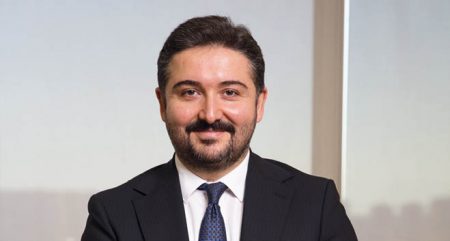Shaping the Future of FDI
In the framework of the 26th World Investment Conference, which takes place in Geneva on September 13-14, GOLD spoke to Ismail Ersahin, Executive Director a.i., World Association of Investment Promotion Agencies (WAIPA) about this year’s topics of discussion as well as recent developments in the
global investment landscape.
By Artemis Constantinidou
The WAIPA World Investment Conference (WIC) has been addressing economic and social issues affecting global investment flows since 1995. What will be the main topics of discussion at this year’s Conference?
This year’s conference is special as we return to having an in-person conference after two years of only being able to meet virtually and in a hybrid format respectively due to the pandemic. In those two years, we saw once again the crucial importance of investment promotion agencies. As such, under the theme “IPAs shaping the future of FDI”, we are going to discuss topics such as Digital FDI, Impact FDI and Sustainabilty. Moreover, we are going to examine onshoring, nearshoring and reshifted GVCs a well as “Creating & crafting investable projects”. Our aim for this year’s annual conference is for it to be the one with the biggest impact so far, with great speakers already confirmed from international organisations such as the ILO, European Commission, WEF and IEDC as well as important actors from the private sector, including Interos, SAP and others. Moreover, we will have numerous workshops, roundtables and ample networking opportunities.
What is the significance of the WIC for the global business world and to whom is it addressed?
The WAIPA World Investment Conference is the largest gathering dedicated to investment promotion and IPAs. We aim to discuss current and future trends in the field. We have always placed a certain focus on the business sector as it comprises clients of IPAs and their input and feedback is most valuable. As an organisation, we intend
to stress tbis link between IPAs and the private sector even further as we are going to launch a Business Advisory Board (BAB). The idea of the BAB is to advise WAIPA on the elaboration of international best corporate investment practices and standards and assist WAIPA members with the implementation of international corporate investment best practices and standards through high-level consultative meetings.
What are the role and objectives of
WAIPA and how many members does the association have?
WAIPA provides the opportunity for IPAs to network and exchange best practices in investment promotion. We promote and develop understanding and cooperation amongst these agencies, strengthen information gathering systems, promote the efficient use of information and facilitate access to data sources. Moreover, we share country and regional experiences in attracting foreign investment and enhancing outward investments, assist IPAs in advising their respective governments on the formulation of appropriate investment promotion policies and strategies and facilitate access to technical assistance and promote training of IPAs. As such, we serve members from 100+ countries. We can do that due to the strong institutional anchorage we have with our Consultative Committee that consists of UNCTAD, UNIDO, UNWTO, ICC, IEDC, ILO, OECD and the World Bank.
What are the best practices that should be implemented by investment promotion agencies in order to ensure that a country’s investment opportunities are successfully promoted?
These are manifold and, as WAIPA, we place great importance on experience sharing. IPAs generally aim to support governments by creating an investor- friendly environment to ultimately attract investments and they are thus a critical link between the public and private sector. It is important for IPAs to know their strengths, to know what they want and to know what they can offer. When this is the case, they can be crucial in the attraction and facilitation of investment.
How has the global investment landscape developed in recent years and to what extent has it been affected by the COVID-19 pandemic and war in Ukraine?
External factors such as those mentioned – particularly in recent years, of course – affect the work of IPAs. In the past, IPAs were predominantly agencies that promoted a country or location. Their role has changed considerably in recent years and their mandate has increased accordingly. IPAs are expected to adapt to those changes and look for new opportunities for their location. Upcoming trends include digital FDI, which was simply accelerated due to the pandemic. Moreover, we place a strong focus on sustainability and SDGs and, of course, the question of Global Value Chains (GVCs) is a most important topic these days. Hence, we are happy that we will be discussing all these timely topics at our WIC this year.
In your opinion, which business sectors are likely to attract more investment in the coming years?
In our previous WAIPA-World Bank Global IPA survey, we examined the top 15 sectors for investment promotion as reported by IPAs. Almost two-thirds of those surveyed indicated renewable energy as a high-priority sector. Other important sectors are IT, pharmaceuticals, biotechnology and medical devices; agriculture, fishing, and forestry; food products and beverages; and computer and software services. What we are seeing for IPAs is a re-prioritization of target sectors. Moreover, harvesting innovation/startups will become even more important and a strengthening of connections with the local ecosystem, local SMEs and existing investors is likely to be seen.
How do you expect the world economy to develop over the next decade?
Again we can refer here to our WAIPA-WBG survey. When IPAs were asked about the main changes taking place in investment promotion, the impact of technology and digitalisation was mentioned most often. Other concerns were changes in the market, new investment promotion efforts, policy and regulatory changes. Finally, global and trade uncertainty were mentioned. It has to be noted that these were examined before the pandemic. We know that IPAs are well equipped to tackle these changes and we, as WAIPA, are there to support them.
